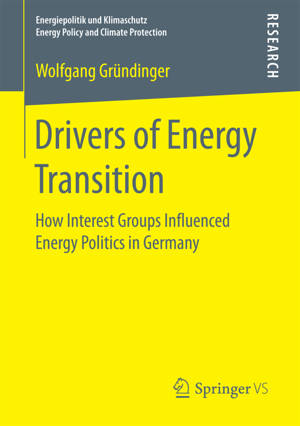
Door een staking bij bpost kan je online bestelling op dit moment iets langer onderweg zijn dan voorzien. Dringend iets nodig? Onze winkels ontvangen jou met open armen!
- Afhalen na 1 uur in een winkel met voorraad
- Gratis thuislevering in België vanaf € 30
- Ruim aanbod met 7 miljoen producten
Door een staking bij bpost kan je online bestelling op dit moment iets langer onderweg zijn dan voorzien. Dringend iets nodig? Onze winkels ontvangen jou met open armen!
- Afhalen na 1 uur in een winkel met voorraad
- Gratis thuislevering in België vanaf € 30
- Ruim aanbod met 7 miljoen producten
Zoeken
Drivers of Energy Transition
How Interest Groups Influenced Energy Politics in Germany
Wolfgang Gründinger
€ 116,45
+ 232 punten
Omschrijving
Wolfgang Gründinger explores how interest groups, veto opportunities, and electoral pressure formed the German energy transition: nuclear exit, renewables, coal (CCS), and emissions trading. His findings provide evidence that logics of political competition in new German politics have fundamentally changed over the last two decades with respect to five distinct mechanisms: the end of 'fossil-nuclear' corporatism, the new importance of trust in lobbying, 'green ' path dependence, the emergence of a 'Green Grand Coalition', and intra-party fights over energy politics.
Specificaties
Betrokkenen
- Auteur(s):
- Uitgeverij:
Inhoud
- Aantal bladzijden:
- 657
- Taal:
- Engels
- Reeks:
Eigenschappen
- Productcode (EAN):
- 9783658176907
- Verschijningsdatum:
- 27/03/2017
- Uitvoering:
- Paperback
- Formaat:
- Trade paperback (VS)
- Afmetingen:
- 148 mm x 210 mm
- Gewicht:
- 784 g

Alleen bij Standaard Boekhandel
+ 232 punten op je klantenkaart van Standaard Boekhandel
Beoordelingen
We publiceren alleen reviews die voldoen aan de voorwaarden voor reviews. Bekijk onze voorwaarden voor reviews.











